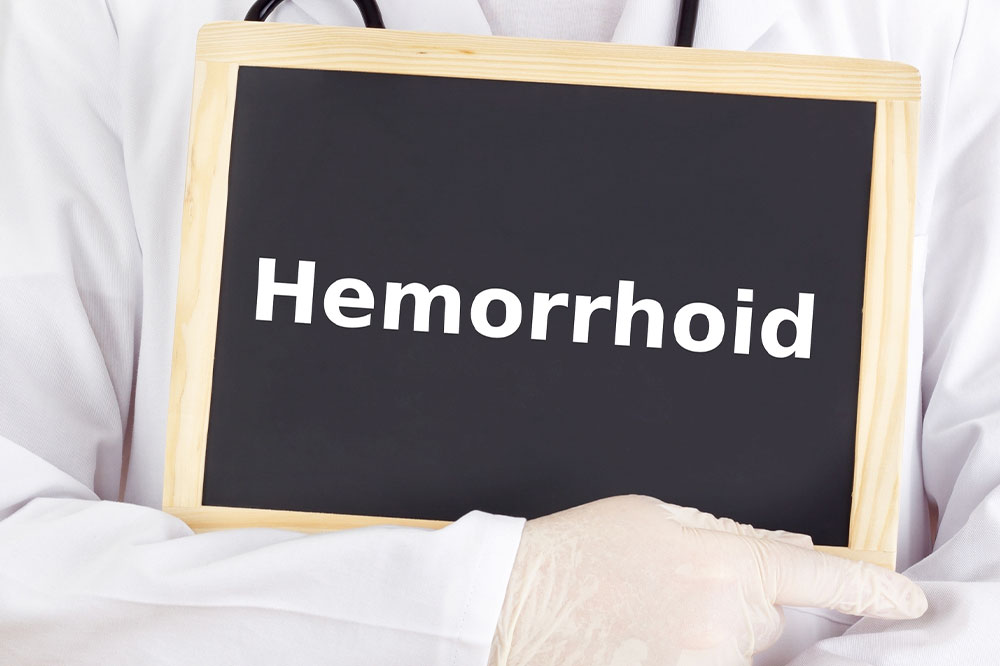Causes and Treatments of Hemorrhoids
Hemorrhoids, commonly known as piles, are responsible for severe swelling or enlargement of the veins in the lower part of the rectum. As we know, the walls around such organs comprise of thousands of blood vessels. A condition in hemorrhoids causes these very vessels to stretch out, leading to an unpleasant and painful experience. Although having hemorrhoids can be a dreadful situation, they can be easily treated with simple ointments, suppositories, and non-surgical options, if and when treated on time.

What causes hemorrhoids?
The enlargement of veins around the anus can be caused by the following factors:
- Aging : Such a condition usually occurs among adults aged between 40 to 65 years. This, however, does not mean that it cannot affect people at a younger age.
- Constipation : Chronic constipation triggers the formation of hemorrhoids due to excessive pressure on the blood vessels.
- Pregnancy : During pregnancy, the uterus enlarges, which puts additional pressure on the veins, causing them to bulge. Relief from hemorrhoids in such a condition can be incurred by consuming high fiber food like whole grains, fruits, and vegetables.
- Heavy lifting : Lifting heavy weights without proper padding and knowledge can trigger the enlargement of veins around the rectum area.
- Obesity : Diet-related obesity can cause hemorrhoids.
- Sitting for long periods : Long periods of sitting in one position, especially on a toilet seat, can trigger hemorrhoids.
Hemorrhoids can be of two types:
- Internal hemorrhoids : These occur deep inside the rectum. They are usually painless, but they can worsen if excessive straining activities are undertaken. They tend to protrude through the anus and are, hence, commonly called protruding or prolapsed hemorrhoids. Such type of hemorrhoids can be very painful.
- External hemorrhoids : These are visible abruptions and usually occur under the skin around the anus. They are far more painful than internal hemorrhoids due to the presence of more sensitive nerves around the rectum. Straining when passing stool or during pregnancy can cause them to bleed.
Relief from hemorrhoids
In a majority of cases, simple home treatments can help alleviate the symptoms of hemorrhoids. However, in some cases, surgery may be needed. Some of the measures that can be undertaken to prevent such a condition are as mentioned here:
- Ointments containing hydrocortisone can prove to be very useful in getting relief from hemorrhoids.
- A simple remedy of ice packs and cold compressive can help soothe the affected area and reduce the swelling. A warm water bath can also prove to be very useful. It can be done by soaking the anal area in plain warm water for 10-20 minutes two times a day. This gives instant relief from hemorrhoids.
- Analgesics can be used for instant relief from pain and discomfort.
- The intake of high-fiber foods like whole grains tends to soften the passing stool and increases its bulk, which avoids worsening the existing symptoms of hemorrhoids.
- Keeping personal hygiene on the top of the list, especially the anal area, is important. Avoid alcohol-based perfume wipes.
- Avoid using dry toilet paper; instead, moist/wet toilet paper should be used.
- Use of ointments, gels, and pads can help. When these are applied to the anal canal, one should ensure that the pile pipes are well lubricated prior to insertion.
Nonsurgical treatment options
There are two common ways of treating internal hemorrhoids via nonsurgical procedures. The first is a basic outpatient procedure where usually an elastic band is placed tightly around the base of hemorrhoid to cut off blood supply. This will make it either fall off or shrink. The second most common and widely used procedure is sclerotherapy, where a prepared solution is injected into internal hemorrhoid to cut off the blood supply. For instant relief from hemorrhoids, infrared electrocoagulation and photocoagulation are the other two options.
Surgical treatment
This procedure for relief from hemorrhoids, if and when undertaken, can lead to the permanent removal of hemorrhoids, known as hemorrhoidectomy. This is a quick solution to remove hemorrhoids within a week’s time. Usually, such procedures are performed under general anesthesia and involve the stapling process where a prolapsed hemorrhoid is tacked back into place.
For immediate relief from hemorrhoids, one can take into consideration the following points and try to inculcate them in their daily routine:
Avoid over-straining
- Avoid rigorous physical activities, including long periods of continuous standing, as it may imply unnecessary pressure on the veins.
- Maintaining a healthy body weight is significant for a whole lot of reasons one can think of. An overweight body increases the risk of having hemorrhoids. Regular diagnosis is, thus, recommended for the same.
- Get a digital examination done in case of a sensation of internal hemorrhoids.
With the kind of lifestyle we are leading today, almost everyone has hemorrhoids; there is nothing abnormal about them. Hemorrhoids tend to clump the vessels; on the contrary, they help control the bowel movements. It is estimated that on an average, 75% people experience enlarged hemorrhoids at some point. Anyone experiencing the symptoms outlined above should consult a doctor. It is usually recommended never to procrastinate such checkups as they might lead to colorectal and anal cancers, which can cause immediate rectal bleeding. Any procedure undertaken for its examination and treatment should be undertaken after an expert opinion is considered. In the case of dizziness and bleeding, the individual should seek emergency care for immediate relief from hemorrhoids.

